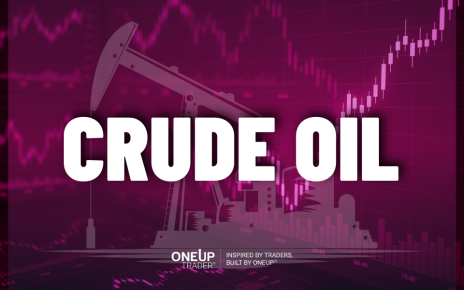- The US private sector lost 33,000 jobs in June.
- US job openings increased to 7.77 million compared to the forecast of 7.32 million.
- Gold rose over 1% on Tuesday after the US Senate passed Trump’s bill.
Gold prices rose on Wednesday after US data revealed weaker-than-expected private employment numbers. Meanwhile, prices rallied in the previous session due to increased demand for safe havens. US fiscal worries intensified after the Senate narrowly passed Trump’s huge tax cuts and spending bill. At the same time, investors were concerned about the impending deadline for reciprocal tariffs, which could escalate trade tensions.
Data on Wednesday revealed that the US private sector lost 33,000 jobs in June. This was a significant surprise, as economists had expected 99,000 new jobs. The downbeat report raised concerns about the state of the labor market. At the same time, it increased expectations for Fed rate cuts.
US job vacancies (Source: Bureau of Labor Statistics)
A separate report on Tuesday revealed that job vacancies unexpectedly rose. It indicated resilient demand for labor. Job openings increased to 7.77 million compared to the forecast of 7.32 million.
However, all focus remains on tomorrow’s nonfarm payrolls report. Economists believe job growth will slow to 120,000. At the same time, the unemployment rate might jump from 4.2% to 4.3%. Softer-than-expected figures will further pressure the Fed to lower borrowing costs, boosting gold prices.
The yellow metal rose over 1% on Tuesday after the US Senate passed Trump’s bill. The bill will likely increase the country’s debt by $3 trillion in the next 10 years. As a result, investors sought safety in gold, which is often regarded as a store of wealth during times of uncertainty.
Meanwhile, there was uncertainty regarding the looming tariff deadline in the US. Trump set the deadline for July 9th. However, so far, many countries have yet to sign trade deals with the US. Therefore, there is a chance that many will soon face higher reciprocal tariffs. If this is the case, trade tensions are likely to escalate, and the global economic outlook could deteriorate. However, there is a chance that Trump will push negotiations to September.
Furthermore, an increase in Fed rate cut expectations has supported gold prices this week. Powell took on a more dovish tone, saying inflation was behaving as expected, excluding the impact of tariffs. Therefore, policymakers might be more willing to cut interest rates. As a result, market participants are almost fully pricing in a rate cut in September.



